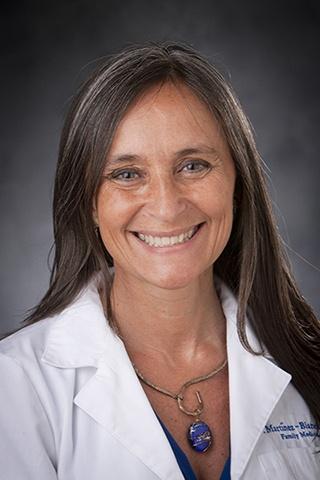“You know me well, doc. I need your advice,” says John, 43, who proceeds to tell me about severe depressive symptoms he is having. He has been brought up in a household where the thought of depression was a sign of failure, of “not being man enough.” Yet he remembers that at last year’s annual visit I had asked if he had been bothered by problems such as little interest or pleasure in doing things, or if he was feeling down, depressed or hopeless. He was feeling well then, but he remembered that I had “opened the door” to safely talk about this, and therefore has come in to seek my opinion.
I have read several studies and editorials that don’t support the annual physical exams or periodic health examinations. Yet, I remember the many opportunities in which having known my patients throughout their “annual physicals” allowed me to know them and their families better, understanding them as individuals, and throughout that longitudinal relationship, gave me the ability to recognize even subtle changes when something was different.
The following are a few true patient stories collected over 20 years as a family doctor. (The names have been changed to provide confidentiality.)
Maria
“I need a physical.” Maria woke up resolute that morning and called the office to be seen for an annual exam. “If the doctor asks, I will tell what worries me.” Concerns with past life experiences too difficult to be shared easily with anyone, “the physical” is seen as a safer way to ease-in “that” difficult conversation. I have not met Maria before. But the urgency of her need for the physical exam prompted me to inquire further, and enter into a long-term and needed therapeutic relationship.
Ruppert
Ruppert is 29 years old and we have known each other for over six years. He sees me once a year for his annual physical. And during one visit, I recommend HIV testing. A screening test is positive. Ruppert later remembers having felt ill the prior year during the first month of a “wild” five-month vacation overseas, but has been feeling well ever since.
Jenny
Jenny brings her son, Juan Jr., for a well child check. She tells me she is worried because Juan has been getting in trouble in school. He used to be a straight-A student, but he has been acting out during the last few months. I ask about Juan Sr. and Jenny starts crying. She explains that there was an immigration raid at Juan’s factory three months ago and Juan was arrested, lacking documentation to live in the United States legally, he is under proceedings for deportation. Together we initiate a plan for supportive therapy for both her and her child, and refer her for legal counsel.
Jakuana
Jakuana is in for her annual. She is the healthy 29-year-old mother of two beautiful girls. As I am doing her physical exam I find a firm mass in her right breast that Jakuana had not noticed before. She has invasive breast cancer.
Kassie
Little Kassie is the emergency room. She fell off the monkey bars and needs stitches. I am Kassie’s doctor and have known her since she was inside her mother’s tummy six years ago. I see Kassie and her mom for all their well checks, and the occasional ear ache or cold. As I arrive in the emergency room to look at her situation, the ED nurses warn me she is so distraught I will need a papoose board in order to restrain her for the exam and suturing. Kassie is delighted to see me and immediately calms down. I stitch her forehead without any restraints and Kassie is talking to me about what she has done in school since her classes started.
Building trust and creating a relationship of mutual respect
The annual physicals and care provided over time allow us the possibility to build trust, to become someone’s personal physician, to anchor the doctor-patient relationship into a relationship of mutual respect, and to know each one of our patients as a person. When time is spent to ask the “right” questions the annual visits cement the recognition of personal and family dynamics, and promote our understanding of their life experience in the context of their social determinants – positive or negative – and their community.
And in times of distress, whether illness or a family problem, or when abnormal findings are observed, that prior relationship comes to play in a more supportive and trusting encounter. Shared decision making is easier when that mutual and prior knowledge is part of the equation.
We need more studies of the results and consequences of these annual visits when they are being performed by family physicians and other members of the health care team who provide ongoing, comprehensive and continuous care of individuals and their families. These trusting therapeutic relationships built over time, coupled with medical knowledge, a meaningful discussion, and a comprehensive exam are building blocks of better and safer health care.
Viviana Martinez-Bianchi is program director of the Duke Family Medicine Residency Program. Email viviana.martinezbianchi@dm.duke.edu with questions.
